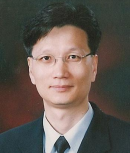* Invited and Regular Papers will be published in various Indexed Journals (ISI, SCOPUS, EBSCO, DBLP, ACM, IET/INSPEC, Proquest, Copernicus etc...) based on quality and reviewers' recommendations or in our Books in Springer Verlag. Click here






* Authors will be informed about the title of the Journal before
their registration.
* Contact us by email:
support@inase.org Registration fees
Publication Ethics and Malpractice Statement
Deadlines
(Previous Conference: CC 2015, Agios Nikolaos, Crete, Greece, October 17-19, 2015)
PLENARY SPEAKERS:

Prof. Liu Institute for Grey System Studies Nanjing University of Aeronautics and Astronautics 29 Jiangjun Avenue, Nanjing 211106, P R China, e-mail: sfliu@nuaa.edu.cn
Centre for Computational Intelligence De Montfort University The Gateway, Leicester, LE19BH, UK, e-mail: sifeng.liu@dmu.ac.uk
Title: "New Progress of Grey System Theory in The New Millennium"
Abstract: The new thinking, new models and new methods of grey system theory and their applications are presented in this paper. It includes algorithm rules of grey numbers based on the “Kernel” and the degree of greyness of grey numbers, the concept of general grey numbers, the synthesis axiom of degree of greyness of grey numbers and their operations; the general form of buffer operators of grey sequence operators; the four basic models of GM(1,1), such as Even Grey Model(EGM), Original Difference Grey Model(ODGM), Even Difference Grey Model(EDGM), Discrete Grey Model(DGM) and the suitable sequence type of each basic model, and suitable range of most used grey forecasting models; the similarity degree of grey incidences, the closeness degree of grey incidences and the three dimensional absolute degree of grey incidence of grey incidence analysis models; the grey cluster model based on center-point and end-point mixed triangular possibility functions; the multi-attribute intelligent grey target decision model, the two stages decision model, etc. And the new framework of grey system theory is given as well.

Prof. Sung-Bae Cho Department of Computer Science, Yonsei University, Seoul, Korea, e-mail: sbcho@cs.yonsei.ac.kr
Title: "Deep Learning for FinTech Big Data Mining"
Abstract: Recent enthusiastic research on deep learning leads to attempting a large variety of applications, but mostly restricted in image and speech recognition. Convolutional neural networks, in particular, have set the latest state-of-the-art in image and speech domains. In this talk, I present the basic idea and methods for the most popular deep learning, and explain the application of them to analyzing the big data collected from P2P lending. This talk will also give the prospect of deep learning for the FinTech domain.

Prof. Zoran Bojkovic, Full Professor of Electrical Engineering, University of Belgrade, Serbia, e-mail: z.bojkovic@yahoo.com
Title: "Big Data and Video Surveillance"
Abstract: Multimedia data has become the majority of data flooding the Internet, especially for video data. Accordingly the Cisco report, Internet video traffic is predicted to be over 25% of all consumer Internet traffic in 2016. It has also been estimated that video surveillance data will account for 65% of all the big data generated in 2015, while this will continue in the next decade. The video contents created and consumed by people in modern life are increasing exponentially. However, video compression and communication efficiency only increase linearly from one generation to the next one. It poses a great challenge not only to the development of video compression and communication technologies, but also to emerging video surveillance applications.On the other hand, big data continues to grow exponentially, while surveillance video has become the largest source. In recent years more and more video cameras have been appearing throughout our surroundings. All of these cameras are capturing huge amounts of video and feeding it into cyberspace only. The next generation often arises is the standardization process. IEEE 1857 standard originated from China Audio Video Coding Standard ( AVS ) is a multi-point standard for multimedia data compression and communication in a highly efficient way. Constraints include limited complexity and bandwidth, in particular for emerging applications such as video surveillance. Large volume of video data, high resolution camera, as well as the long time span for the stored data lead to increasing pressure on data storage. Video quality and the time span are currently sacrificed to fit the total storage capacity which conflicts with the requirements of its application, e.g. object recognition and event understanding. Therefore, innovation in surveillance is urgently required. This Plenary Lecture starts with recapitulation of the related works dealing with coding strategies focused on video data surveillance. Next, characteristics of big surveillance video data ( BSVD ) which contain valuable information embedded in the huge amount of data important for social security are presented. Then, hierarchical analysis is made based on the global redundancies caused by moving objects in BSVD. Also, coding strategy with the corresponding modules is considered. Finally, it is pointed out that for surveillance video coding, the standard IEEE 1857 achieves significant coding bit saving with background environment. Future research directions from the perspective of BSVD applications will be outlined.